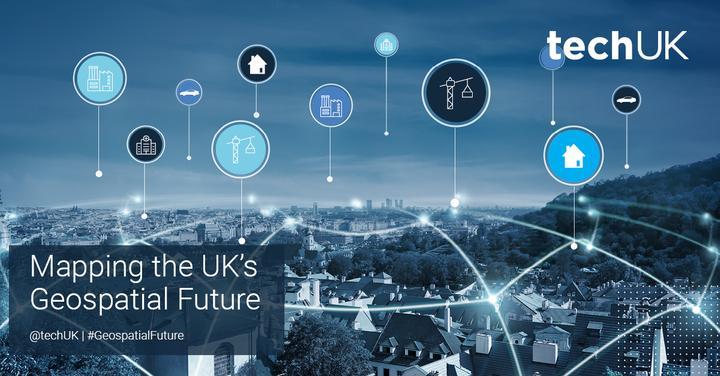Why 2021 is the year to start doing Geospatial (if you're not already)

Our world is constantly changing
We are looking for new ways to prosper while minimising our impact on the world around us. Our need for safety from pandemic, fire, flood and from climate risk has become a priority both individually and collectively. All these challenges - and the opportunities that will arise - have a geographic nature.
Geospatial is everywhere
Geospatial technologies are disrupting business models from transport to retail and bringing fresh new experiences to our leisure time. Location-centric brands like Uber, Strava and Pokemon Go are now household names.
Once the preserve of specialists, location technologies such as GPS and cell-ID enable this through the three billion smartphones in our pockets worldwide. And now iPhone 12 users can use LIDAR to create 3D maps of their surroundings and enjoy new augmented reality experiences.
In many ways this has been a quiet revolution. Business, government, b2b and b2g have been innovating with Geospatial since the field emerged in the 1960’s. The Geospatial community shared a vision and built the infrastructure and products to turn this into reality. With the right blend of talent, content and capability Geospatial thinking can now be applied at scale and at speed.
Despite this Geospatial technologies have not received as much airtime as Cloud Computing, Artificial Intelligence, Blockchain or other emerging technologies. This is beginning to change.
The Geospatial opportunity
We believe that combining emerging technologies with Geospatial will be the difference between success and failure in this changing landscape. A world which continually optimises our use of resources, keeps us safe and ensures a sustainable environment for future generations depends on data influenced entrepreneurialism, policy, regulation, and individual choice.
When a government targets social care to vulnerable households, locates vaccination centres according to demand or pinpoints fire risk, we get the help we need when we need it, where we need it. When retailers optimise their supply chain we get the right product at the right time to the right location . When policy makers make decisions that help us reduce carbon emissions, we create a sustainable environment for generations to come. Geospatial data underpins all these things and more.
Geospatial data is simply data that includes a location: data about people’s behaviour, health, homes, workplaces, journeys, weather, air quality and land for example. Data is captured from space and from the air by hundreds of earth observation satellites, aeroplanes and drones. It is captured on the ground by specialist surveyors. An ever-growing internet of location aware things means that sensors update the map in real time. Geospatial data is captured every time we access a service from the public and private sectors. Of course, each organisation collects its own location aware data which can be the most valuable of all.
This creates a mass of data, at the same time complex and hugely powerful.
Co-creating the future with Geospatial
We believe those who unlock this power will be the first to spot emerging trends, risks, and opportunities. They will create value and new experiences for citizens and find new ways to gain competitive advantage. They will do this by recruiting the most talented Geospatial professionals and collaborating with specialist Geospatial companies to add new dimensions to multidisciplinary teams.
The Geospatial community is looking to connect with leaders from the wider technology sector to align Geospatial thinking with your business strategy and to co-create new value together. We look forward to speaking with you and making this happen.
You can read more insights from techUK's #GeospatialFuture campaign here!

Laura Foster
Laura is techUK’s Associate Director for Technology and Innovation.


